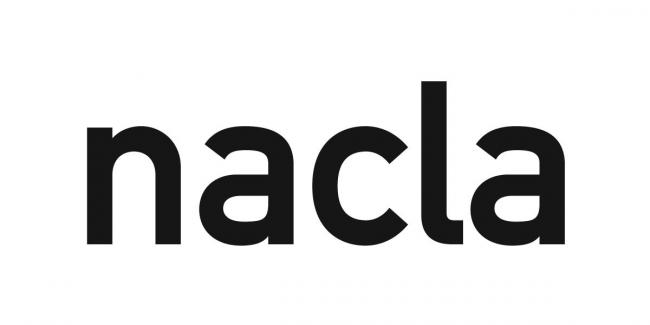
On the afternoon of November 10, 2019, Bolivian president Evo Morales announced that he would resign. The resignation came amid ongoing conflict that arose in the wake of the October 20 elections. Evo Morales had declared victory in the first round. The opposition—an amalgam of political forces and positions—argued, albeit with no clear evidence, that the vote was marred by fraud. Three weeks of intensifying clashes between pro- and anti-Evo groups ensued, with mutual accusations of culpability for the violence. An OAS team completed an audit of the vote and announced on November 10 that there were many irregularities. Nonetheless, no hard evidence has appeared to sustain the allegations of wholesale fraud.
On the morning of November 10, in the wake of the OAS declaration, Morales called for new elections. Later that day, with violence intensifying, the military high command made a statement “suggesting” that Evo should resign. Some left, Indigenous, and progressive sectors in Bolivia, disillusioned with the slow erosion of progressive aspirations under Evo, also made public statements calling on Evo to resign, or to consider doing so. On November 12, an opposition Senator was unconstitutionally declared president by a handful of legislators in the absence of a quorum. It is important to recognize the multiplicity of factors that led to the current upheaval, including the MAS’ own role and a history of political miscalculations. However, the unfolding pattern of rightist revanchism, the role of oligarchic forces and external actors, and the final arbitrating role played by the military, suggests that we are witnessing a coup.
As a group of left thinkers, educators, journalists, scholars, and activists we write this letter in solidarity with the Bolivian people. We call for continued support of progressive social movements and continued resistance against revanchist violence and state repression. We stand with the people of Bolivia who remain vigilant against the rise of neo-fascist political forces and the return of the colonialist, dependent, and racist political regimes of the past. We reject efforts by the media and the U.S. government to demonize the MAS. At the same time, we recognize the limitations of the MAS as a political party, and of the patriarchal and prebendal political system that it has been unable, or unwilling, to change.
At present, a particularly troubling development is the threat to the lives of those Bolivians who are resisting the coup. The return of conservative right-wing forces, fused with anti-Indigenous evangelical Christian symbolism, threatens to run roughshod over the legitimate efforts of many Bolivian citizens to pluralize, democratize, and renovate the party system. The widespread use of arson attacks—mutually attributed to both sides, though of unclear authorship—has created an unprecedented atmosphere of fear, terror, and chaos that clearly plays into the interests of the reactionary elite. The ransacking of Evo Morales’s house, the burning of Indigenous symbols like the wiphala, and the pervasive racist and dehumanizing language on social media all suggest tactics aimed at absolutely destroying Evo and the MAS as a viable political force.
In the face of these challenges, we stand with those movements in Bolivia that seek to rearticulate a progressive vision of the future. We stand against the restoration of neoliberalism and the hegemony of the IMF and the World Bank, especially as the struggle over Bolivia’s gas resources give way to a new struggle over the future of Bolivia’s lithium. We stand in support of anti-racist movements that are resisting the racism and fascism of the Right. We stand with women’s and LGBTQIA+ movements who have been fighting for sexual liberation, for a woman’s right to choose, against patriarchal forms of political rule, and for an end to impunity in the face of rising levels of gender and sexual violence. We stand with Indigenous movements that seek to restore a vision of true plurinationalism, self-determination, and territorial autonomy against the unfettered violence of extractive capital. We stand with workers who seek dignified employment and state support in the face of precarious labor conditions. We stand with farmers who are working toward a future not dominated by agroindustrial capital. We stand with those who are working for a more egalitarian and ecologically sustainable future.
We write this letter on behalf of NACLA (North American Congress on Latin America) and are calling on the international community to provide solidarity and support to the diversity of social movements that exist in Bolivia in this historic moment. We call upon the international community to respect the sovereignty of Bolivian social movements.
NACLA was founded in the wake of the 1966 United States invasion of the Dominican Republic. NACLA offers progressive reporting on Latin America to U.S.-based audiences and has a long history of resisting U.S. imperialism in Latin America.
- NACLA Editorial Board

